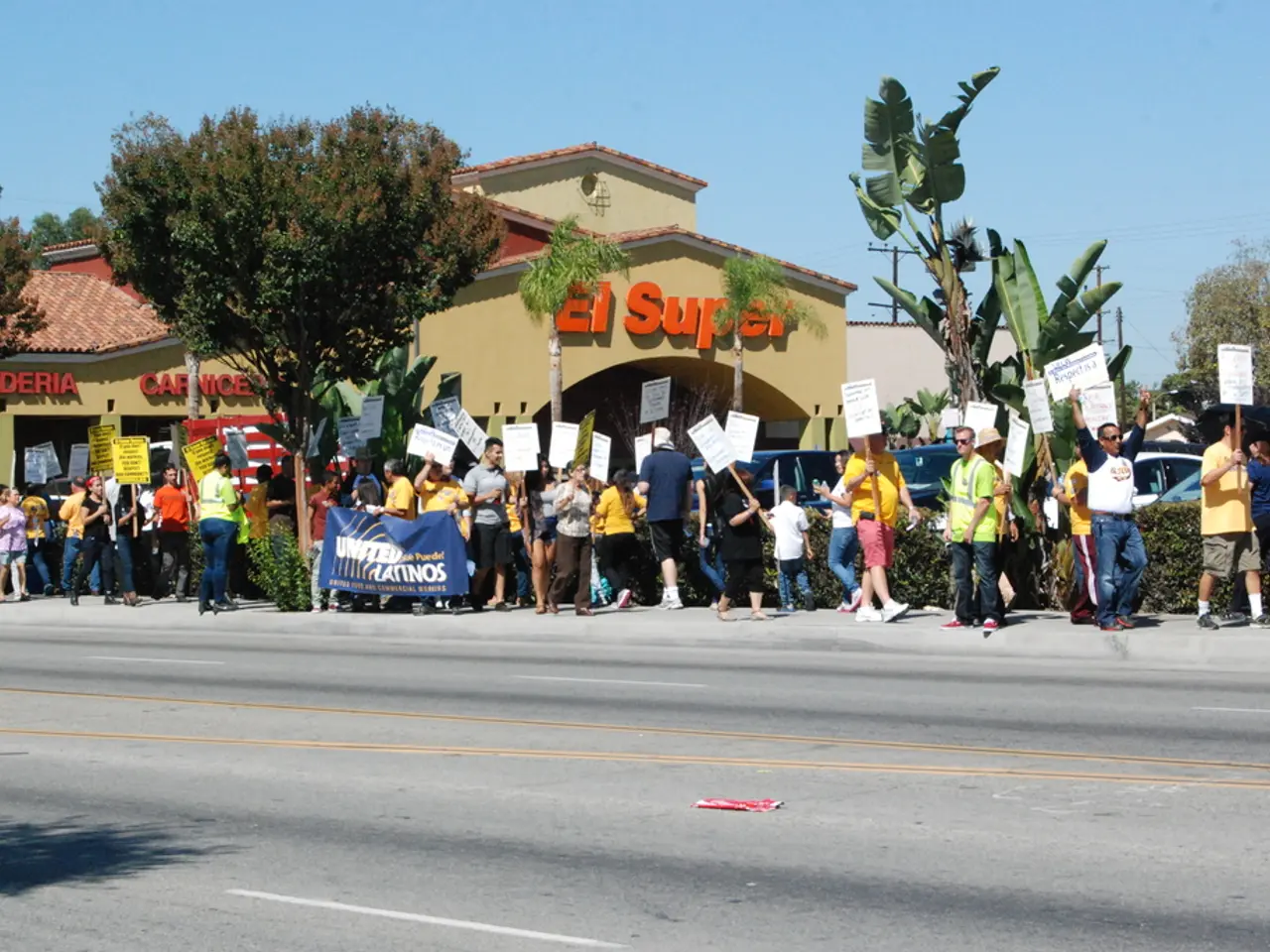Political party FDP undergoes reorganization focusing on content changes following electoral failure - Political party FDP restructures its content following election defeat
The Free Democrats (FDP), a German political party, are undergoing a significant transformation following their disappointing performance in the February federal election, where they failed to secure a seat in the Bundestag with 4.3% of the vote. This result marked the party's worst performance in a federal election to date.
In an effort to regain their footing, the FDP has initiated a content renewal, starting with a member survey. This survey aims to gather political concerns and expectations, as well as ideas and opinions about the value of freedom and Germany's future in 2040. The survey is accessible via the FDP app for members and will later be available on the FDP homepage for citizens.
The FDP is also employing artificial intelligence in the development of its new manifesto. This innovative approach is intended to analyze the collected data efficiently and support the creation of a modernized, data-driven political platform.
The new election program will be decided at the federal party conference in May 2023. Christian Dürr succeeded Christian Lindner as party chairman at this conference, while Nicole Büttner was elected as the new general secretary. Büttner had previously stated that the FDP aims to be the most modern party in Germany.
Unfortunately, the new manifesto will be too late for the first two major tests in the coming year: the state parliament elections in Baden-Württemberg (March 8, 2026) and Rhineland-Palatinate (March 22, 2026). The FDP has not been in parliament since the February federal election, and this setback could make the nationwide regeneration of the Liberals more difficult.
Despite these challenges, the FDP remains committed to its renewal strategy, which involves intensive engagement with party members and the application of innovative methods such as artificial intelligence. This approach aims to reposition and strengthen the party by incorporating member-driven input and leveraging advanced technology for strategic content development.
[1] Sources: Various online news articles and reports about the FDP's post-election renewal processes and the Friedrich Naumann Foundation's strategic renewal and reorganization efforts.
- The Free Democrats (FDP), keen on regaining their political footing, have launched a member survey to gather insights on political concerns, expectations, and ideas about Germany's future in 2040, particularly focusing on the value of freedom.
- Recognizing the importance of modernizing their approach, the FDP is utilizing artificial intelligence in the development of their new election manifesto, aiming to create a data-driven political platform that appeals to both party members and the general public.
- In a bid to stay ahead in the rapidly changing political landscape, the FDP aspires to become the most modern party in Germany, with their new general secretary, Nicole Büttner, advocating for this goal.
- With the rising issues of migration, war-and-conflicts, policy-and-legislation, accidents, fires, crime-and-justice, general-news, and car-accidents modernization and reforms becoming increasingly necessary, the FDP aims to present a modern, adaptable platform that can address these challenges effectively.
- Vocational training will likely play a crucial role in the FDP's future policy-making, as they strive to create a skilled workforce capable of meeting the needs of the evolving employment landscape, particularly in light of potential migration from EC countries.






